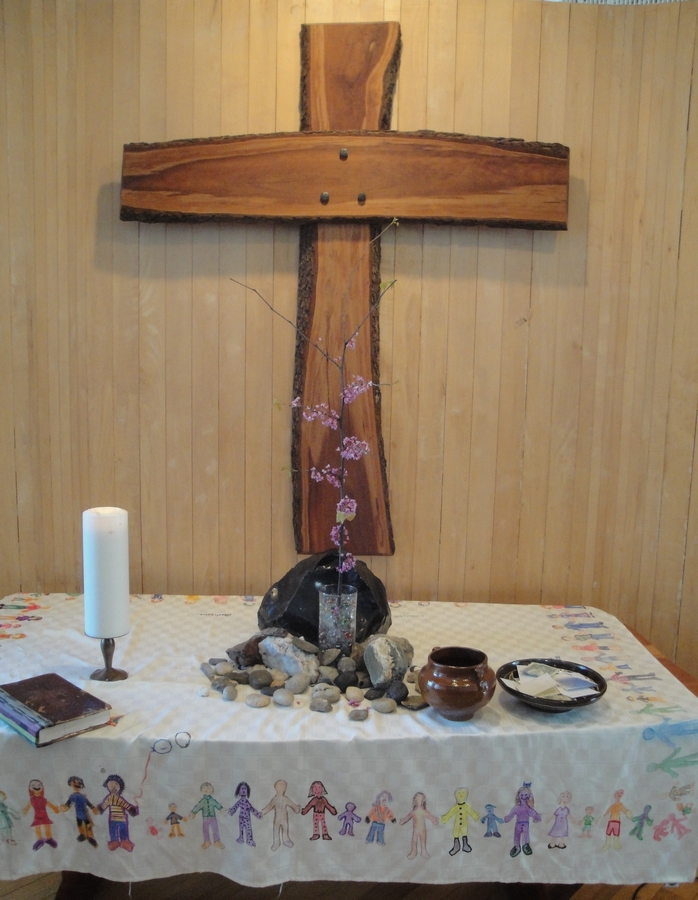April 17, 2016
Fourth Sunday of Easter
1 [[A Psalm of David.]] The LORD is my shepherd; I shall not want. 2 He maketh me to lie down in green pastures: he leadeth me beside the still waters. 3 He restoreth my soul: he leadeth me in the paths of righteousness for his name’s sake. 4 Yea, though I walk through the valley of the shadow of death, I will fear no evil: for thou art with me; thy rod and thy staff they comfort me. 5 Thou preparest a table before me in the presence of mine enemies: thou anointest my head with oil; my cup runneth over. 6 Surely goodness and mercy shall follow me all the days of my life: and I will dwell in the house of the LORD for ever.
I. Introduction:
Like many others, this beloved Psalm bears the simple titled, A Psalm of David. There is no concrete timeline or timeframe of when David wrote Psalm 23. However, there are two different accounts on it’s significance: (1) most account it to be a Psalm of David’s maturity, but with vivid remembrance of his youth as a shepherd; or (2) others account it to be a Psalm of reflection, written while David was living with Barzillai in Gilead when he fled from his son Absalom – who was trying to become king.
This second account is more appropriate for this sermon on this morning. It was during this time in Gilead that David began to see and understand God for who He was to him. God was still providing for him and protecting him. All while Absalom was consumed with becoming king that he wanted to kill his own father. So, David decided to put these ideas into Psalm 23.
There’s many of us that know this psalm better than we know any other psalm…or scripture for that matter. It has given help to millions of people. Didn’t Jesus say He was the shepherd in this psalm? If we believe in Jesus, we are one of His sheep. We can say, “The LORD is MY shepherd!”
Charles H. Spurgeon, a British Baptist preacher, wrote concerning Psalm 23: “It has charmed more griefs to rest than all the philosophy of the world. It has remanded to their dungeon more felon thoughts, more black doubts, more thieving sorrows, than there are sands on the seashore. It has comforted the noble host of the poor. It has sung courage to the army of the disappointed. It has poured balm and consolation into the heart of the sick, of the captives in dungeons, of widows in their pinching griefs, of orphans in their loneliness. Dying soldiers have died easier as it was read to them; ghastly hospitals have been illuminated; it has visited the prisoner, and broken chains, and, like Peter’s angel, led him forth in imagination, and sung him back to his home again. It has made the dying Christian slave freer than his master, and consoled those whom, dying, he left behind mourning, not so much that he was gone, as they were left behind, and could not go too.”
This morning, I would like to help us transform our faith by directing our attention to five principles from Psalm 23 to help us understand why the Lord is our shepherd: provision, presence, protection, preparation, and promise.
II. Provision (vv. 1-3): “The Lord is my shepherd; I shall not want. He maketh me to lie down in green pastures: he leadeth me beside the still waters. He restoreth my soul: he leadeth in the paths of righteousness for his name’s sake.”
As we know David was a shepherd, and knew from firsthand experience that the welfare of any particular sheep depends on the type of man who owns it. Under one shepherd, sheep might struggle, starve and suffer endless hardships. Yet under another shepherd, they might flourish and thrive contentedly.
III. Presence (v. 4a): “Yea, though I walk through the valley of the shadow of death, I will fear no evil: for thou art with me;”
IV. Protection (v. 4b): “Thy rod and thy staff they comfort me.”
V. Preparation (v. 5): “Thou preparest a table before me in the presence of mine enemies: thou anointest my head with oil; my cup runneth over.”
VI. Promise (v. 6): “Surely goodness and mercy shall follow me all the days of my life: and I will dwell in the house of the LORD forever.”
VII. Conclusion:
(Note: David Parker is the founder and pastor of the Triumphant Victory Church, which gathers worship for in the Seekers building on Saturday afternoons.)
